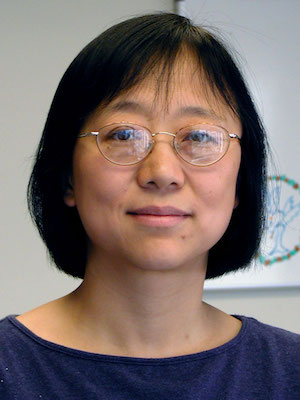 The Elizabeth D. Hay Professorship in Cell Biology honors the legacy of Betty Hay, a pioneering figure at Harvard Medical School and in the field of cell biology. We are pleased to announce that Dean Jeffrey Flier has named Dr. Junying Yuan, Professor of Cell Biology, as the inaugural recipient of this endowed chair.
The Elizabeth D. Hay Professorship in Cell Biology honors the legacy of Betty Hay, a pioneering figure at Harvard Medical School and in the field of cell biology. We are pleased to announce that Dean Jeffrey Flier has named Dr. Junying Yuan, Professor of Cell Biology, as the inaugural recipient of this endowed chair.
Dr. Hay was the first woman to be appointed as a full professor in a preclinical department at the Medical School in 1969, and served as the Chair of the Department of Anatomy (later the Department of Cell Biology) for sixteen years. Through her expertise in electron microscopy, Dr. Hay was the first to show that the extracellular matrix plays a vital role in determining cell behaviors, including cell shape, cell-to-cell signaling, wound repair, cell adhesion, and tissue function. Her work provided some of the first evidence for the existence of ECM receptors (now known as integrins) on the epithelial surface, and her discoveries formed the foundations for an entirely new field of cellular biology. She was also responsible for showing that cell differentiation is not an irreversible process, and the first to describe the transition of epithelial cells into mesenchymal cells, a process central to development and cancer metastasis.
Junying Yuan joined the Department of Cell Biology as an Assistant Professor in 1996 and was appointed full professor in 2000. As a graduate student, Dr. Yuan studied the relatively unknown field of cell death, and her work would eventually help lead Bob Horvitz to a Nobel Prize in 2002. Her research provided the first evidence of the existence of a targeted cellular death mechanism--apoptosis--that counterbalances cell proliferation, which transformed the cell death field from a descriptive science into a molecular discipline. More recently, Dr. Yuan discovered a regulated form of necrosis, called necroptosis, and has spent the last few years studying its molecular mechanism and identifying small molecule inhibitors, some of which have generated significant interest as possible therapeutics.
Congratulations again to Dr. Yuan!